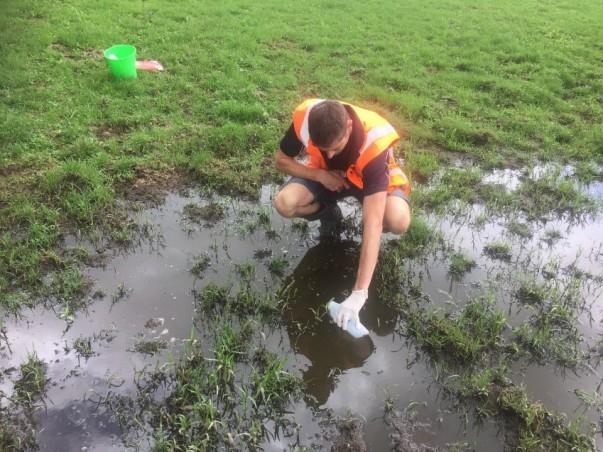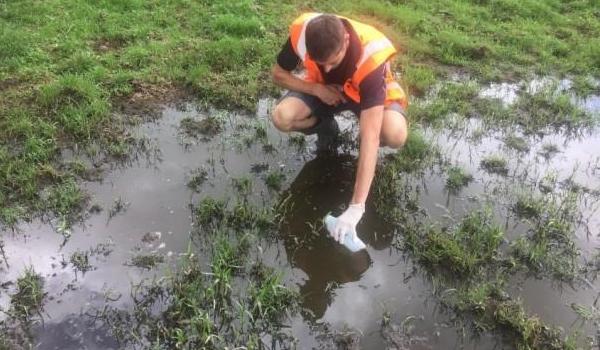Waikato Regional Council news
A Cambridge farming company and one of its directors have each been convicted of eight charges under the Resource Management Act, and been fined a total of $131,840.
This is the largest total fine imposed for illegal dairy effluent discharges into the environment, in the Waikato region, since the RMA came into force in 1991.
The company, Pollock Farms (2011) Limited, operates a dairy farm on Victoria Road near Cambridge. One of its directors, Dawson Craig Pollock, has been the subject of prosecution for similar breaches of the RMA in 1993 and 2001.
In addition to the fine, the court has imposed an Enforcement Order on the company to ensure appropriate effluent management infrastructure is installed.
The convictions, fines and enforcement order were imposed by Judge Melanie Harland in the Hamilton District Court yesterday (5 March 2019) following guilty pleas by the company and director.

The case was taken by Waikato Regional Council following a series of inspections where over-irrigation of effluent was evident. Effluent from an underpass to an adjoining property was also being pumped directly to land in large volumes. Both practices pose a real risk of effluent contaminating groundwater.
Similar breaches had been found by the council during the course of 2016 and 2017. Formal warnings and infringement notices had been issued for those breaches and an abatement notice had been served on the farming company in September 2016 to cease the illegal practices.
“This farmer is undermining all of the positive work being done by the wider farming industry and community to improve our environment,” said council investigations manager, Patrick Lynch.
“This farm has posed an ongoing risk to the environment for years. There has been woefully inadequate infrastructure on this farm since Mr Pollock first appeared before the courts in the 1990s. Quite simply, he has ignored all of the actions taken by the council to date, as well as all of the messaging from his own industry to improve.
“We have established that from 2010 to 2016 the company purchased a neighbouring farm and virtually doubled their herd size, from 380 to 700 cows, with no expansion of dairy effluent infrastructure,” Mr Lynch said.
“Every dairy farm should have sufficient storage to be able to safely store effluent through wet and busy periods. The idea being that when weather and circumstances allow, this effluent can then be irrigated to land as fertiliser in an environmentally safe, and economically prudent, manner.
“On this particular farm the storage was only sufficient for a single day. It should have been up to 100 times larger than that. With virtually no storage, this means there will have been regular and frequent unlawful discharges of dairy effluent into the environment for years.”
Mr Lynch added: “We would have expected Mr Pollock to have changed his practices following his first prosecution. Unfortunately, it has taken numerous enforcement actions, including three prosecutions and finally a court order, for that farm to ultimately get to a good place.
“This is a very significant fine. It is a clear message to those poor performers in the dairy industry that they need to change their behaviour, as the courts, the public and even their own industry has lost patience with them,” Mr Lynch said.
PHOTOS:
PollockFarm1: Council officer taking a sample of ponded effluent.
PollockFarm2: Effluent sump overflowing.

